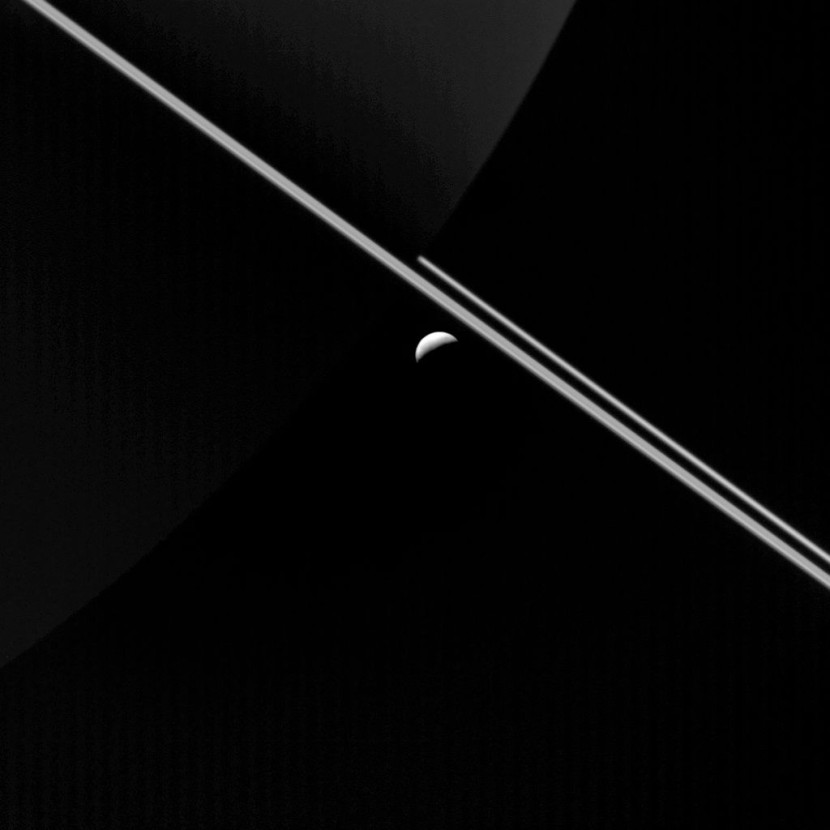
- Scientists discover plentiful phosphorus in water geysers on Saturn's moon, Enceladus
- Phosphorus is the rarest of six elements that are considered the building blocks of life
- Enceladus is considered out of likely places in our solar system where life could potentially exist
Scientists have detected phosphorus, considered a key building block of life, on Saturn's moon Enceladus.
The people reviewing data sent home by NASA's Cassini spacecraft roughly a decade and a half ago said that they discovered phosphorus in water geysers. These routinely blast into space from Saturn's moon, one of the likely places in the solar system where life could exist.
Key Building Block of Life on Saturn's Moon
The moon in question is covered in ice and harbors a massive ocean of liquid water hidden underneath an icy crust. Previously, scientists found other key building blocks of life in Enceladus' ocean, including carbon, hydrogen, nitrogen, sulfur, and oxygen, as per Space.
However, phosphorus, the rarest of the six elements and known to team up with sugars to form a skeleton for DNA molecules and help repair and maintain cell membranes, has been evasive.
But the latest findings estimate that the phosphorus concentrations on Saturn's moon are at least 500 times higher than the highest known concentrations in our planet's oceans. The discovery, announced in a paper published on June 14, shows that Enceladus now satisfies the "strictest requirement of habitability."
In a statement, a professor of planetary sciences at the Freie Universitat Berlin in Germany, Frank Postberg, said that they did not find life or something created by life. He noted that the team found signs of something that suggests that life is capable of forming.
Enceladus, considered modestly sized, with its diameter only a few hundred miles, seems to have what scientists call a "soda ocean." According to the Washington Post, this means that it is carbonated, bubbly, and salty.
Significant Scientific Discovery
Postberg argues that the ocean on Saturn's moon could taste a little soapy if you drank a glass. While the ocean is hidden underneath a layer of ice many miles thick, frozen particles migrate through cracks in the ice and are blasted into space.
The sextet of elements, known as CHNOPS, based on the first letter of each element, works alongside water and energy to become foundational to biochemistry on Earth. Due to phosphorus' relative rarity, it is considered a "bottleneck" for life.
Postberg added that phosphorus in phosphates is considered vital for all life. He says it is crucial for creating DNA and RNA, cell membranes, and ATP, which is the universal energy carrier in cells.
The professor noted that previous geochemical models were divided on the question of whether or not Enceladus' ocean contains significant quantities of phosphates at all. Postberg added that the Cassini measurements provided significant evidence of substantial quantities of the essential element in Enceladus's ocean water, said CNN.
Related Article: NASA Says 'UFO' Spotted in Las Vegas Likely a Bright Meteor
© 2026 HNGN, All rights reserved. Do not reproduce without permission.







